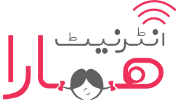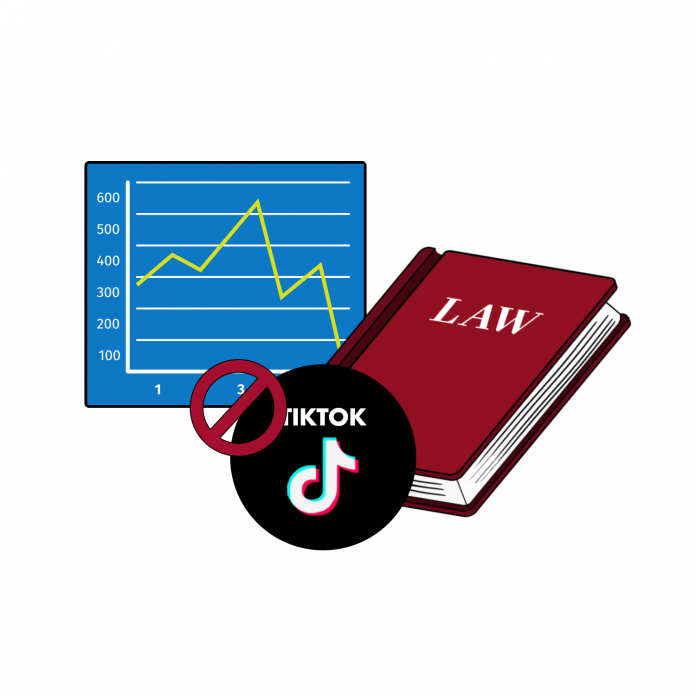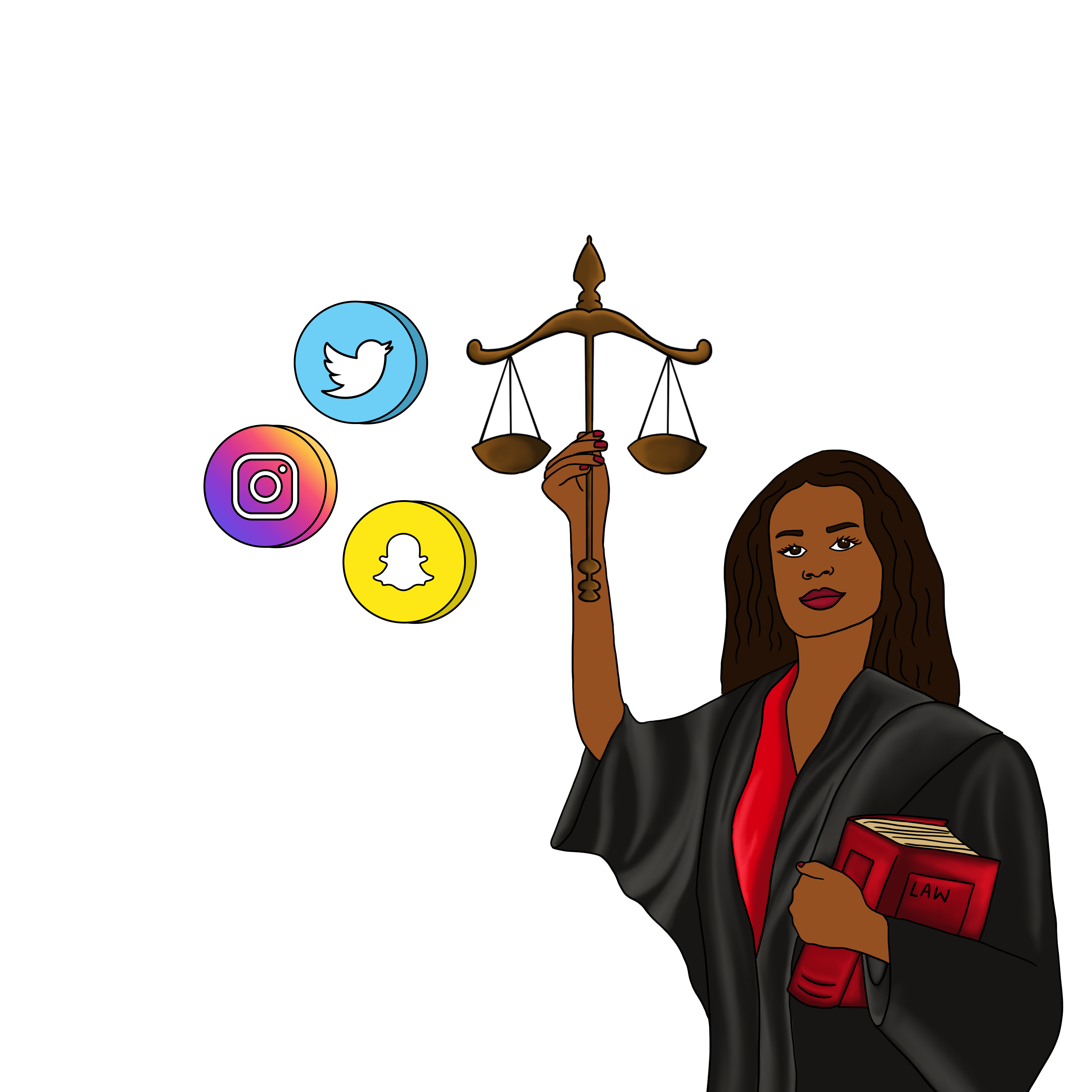By Salwa Rana
Tiktok has remained one of the most contested issues on the Pakistani internet for more than a year. The application was banned for the fourth time in July this year by the Pakistan Telecommunication Authority (PTA) which later lifted the ban last month in November following criticism of its decision by the Chief Justice of the Islamabad High Court (IHC). Previously, Tiktok’s allegedly “immoral and indecent” content has resulted in three different petitions being filed in the Sindh and Peshawar High Courts, while the Islamabad High Court was inclined towards highlighting the benefits of the application which is being used for multiple activities like education, awareness-raising and a source of income for many. The IHC has also questioned PTA as to why Tiktok remains the target for the government, when objectionable content can be found on almost every social media platform. This is a question that many have pondered upon, but there is still no clear answer as to why the content specifically on Tiktok is a cause for concern for the Authorities, and what kind of measures are demanded from the platform in order to filter inappropriate content.
The instability of Tiktok’s status in Pakistan has raised a number of other concerns within the content regulation framework in the country like the overbroad powers granted to PTA by the infamous Prevention of Electronic Crimes Act (PECA), 2016, and the lack of transparency that exists within PTA’s exercise of its content regulation powers under the Act. The continuous cycle of placing bans on the app and then lifting them also raises the question of a lack of coherent policy on content regulation in the country. During one hearing on a matter related to Tiktok in the Islamabad High Court, Chief Justice Athar Minallah had asked PTA’s legal team if they had received any policy directions from the Federal Government regarding removal/ blocking of content, to which the PTA replied in negative. The Federal Government’s intervention through policy directions is mandatory under section 37 of the PECA, 2016, in the absence of the rules which lay down the mechanism through which the PTA is required to exercise its content moderation powers. The Removal and Blocking of Unlawful Online Content Rules, 2021, have also been challenged multiple times since their inception in early 2020 with a number of revised drafts being introduced by the Government to appease the civil society and digital rights activists who have claimed that the rules are a violation of fundamental human rights.
The article does not challenge PTA’s decision declaring certain videos on Tiktok as inappropriate, but rather documents the past one year of Tiktok’s unsteady journey, including all major orders by the provincial high courts and press releases by the PTA. It also aims to shed light on the legal gaps within the operation of the existing legal content moderation framework under the PECA, 2016 and the overall lack of transparency of regulatory bodies and policy-making procedures.
Timeline of Tiktok’s volatile year in Pakistan
October 2020- PTA bans Tiktok for the first time
The app was banned in Pakistan for the first time in October 2020. The press release posted on PTA’s official website read: “In view of a number of complaints from different segments of the society against immoral/indecent content on the video sharing application TikTok, Pakistan Telecommunication Authority (PTA) has issued instructions for blocking of the application. Keeping in view the complaints and nature of the content being consistently posted on TikTok, PTA issued a final notice to the application and gave considerable time to respond and comply with the Authority instructions for development of effective mechanisms for proactive moderation of unlawful online content. However, the application failed to fully comply with the instructions, therefore, directions were issued for blocking of TikTok application in the country.”
October 2020- Meeting held between PTA and Tiktok
In a press release issued on PTA’s official website on 12th October, 2020, it was announced Tiktok’s management and Chairman PTA held a virtual meeting where Tiktok’s senior representative highlighted the “efforts that have been taken besides sharing future strategy to improve content moderation in line with local laws.” It went on to state that both parties had agreed to work on a mutually acceptable mechanism for content moderation. Once again, no detail was provided about PTA’s requirements and/ or the efforts put in by the app’s management to satisfy the Authority’s concerns.
October 2020- Petition filed in the Islamabad High Court against the ban
On 14th October, 2020, Muhammad Ashfaq Jutt, a Lahore-based sportsman and athlete, filed a petition challenging the “arbitrary and unexplained” ban on the application in the Islamabad High Court. The petitioner, associated with Mixed Martial Arts, ran a private training club and had been using the popular video-sharing app as a platform to promote his skills and club to earn a living. The petition requested the court to declare the ban imposed against the fundamental rights of the citizens secured in the Constitution, namely, right to access to information and freedom of expression, right to life and economic liberty, the right to be heard and principles of natural justice.
October 2020- PTA lifts ban on Tiktok on “conditional basis”
PTA announced in another press release on 19th October, 2020, that Tiktok was being unbanned “subject to the condition that the platform will not be used for the spread of vulgarity / indecent content and that the societal values will not be abused. PTA will be constrained to permanently block the application, in case the said condition is not fulfilled.” The press release does not provide details of any assurances given by the app’s management on how it will ensure that its platform is free from “vulgarity/ indecent content” or how exactly the Authority was measuring the abuse of “societal values”.
March 2021- Peshawar High Court bans Tiktok
On 11th March, 2021, five months after the first ban on Tiktok was lifted, Peshawar High Court ordered another ban on the application. Chief Justice Qaiser Rashid Khan of the Peshawar High Court held that the videos uploaded on the app were “not acceptable for Pakistani society” by spreading obscenity. He commented on a number of reports received by him regarding the content on the app which led him to make this decision, however, it was not known what these reports were and which videos they pointed to. While the PTA lifted the ban on Tiktok in October, 2020 citing its satisfaction with Tiktok’s management on their efforts to improve the content moderation mechanism, the Authority told the Court that they were not receiving a “positive” response from the management of the app. This added to the existing confusion about PTA’s relationship with Tiktok.
April 2021- Peshawar High Court reverses its decision of banning Tiktok
On 1st April, 2021, the Peshawar High Court ordered the ban on Tiktok to be lifted after being assured by the PTA that a focal person was hired by Tiktok for the issue of “immoral content” being uploaded on the app and that measures will be taken to make sure that action will be taken against those who repeatedly violate the community guidelines. The Court did not describe what “immoral content” entails.
June 2021- Sindh High Court orders ban on Tiktok
Less than three months after the ban on Tiktok was lifted in accordance with the directions of the Peshawar High Court, on 28th June, 2021, Sindh High Court ordered PTA to ban the application after a petition was filed claiming that the spread of immoral and obscene content on the app persisted. In its decision, the Sindh High Court expressed frustration over Tiktok failing to comply with PTA’s directions and fulfilling its promises to ensure that such content would be taken down immediately.
July 2021- Sindh High Court lifts ban on TIktok
Less than a week after ordering the application to be banned, the Sindh High Court directed Tiktok to be unbanned after PTA assured the Court that the complaint of the petitioner regarding the questionable content was being processed and would be addressed shortly.
July 2021 PTA bans Tiktok
On the 21st of July, 2021, a press release on the official website of PTA announced the fourth ban on Tiktok. The press release stated, “In the light of relevant provisions of Prevention of Electronic Crimes Act 2016, PTA has blocked access to TikTok App and website in the country. The action has been taken due to the continuous presence of inappropriate content on the platform and its failure to take such content down.” The announcement did not provide any details regarding previous communications between the Authority and the app’s management despite PTA’s assurances to both Peshawar and Sindh High Court that Tiktok would take steps to ensure effective content moderation which ultimately convinced the Courts to lift the ban on the application.
October 2021- Islamabad High Court declares ban on Tiktok “unconstitutional”
The Islamabad High Court, during a hearing conducted on 25th of October, 2021, held that the blocking of Tiktok was a violation of constitutional rights as thousands of middle class citizens used the application to earn money and it had become an important source of their livelihood. It also noted that during the submissions made to Peshawar and Sindh High Court regarding the inappropriate content on the app, only 1% of total videos were said to be “immoral” or “indecent”. The Chief Justice of the Islamabad High Court has, on multiple occasions, reminded PTA that a majority of the population do not engage in objectionable content on the app which is why it was not justified to ban the entire platform.
The Court, during this hearing, also questioned PTA about which experts were being consulted for the regulation of such content, especially on Tiktok but it was evident from PTA’s response that they were not willing to share that information, if any experts were involved at all. PTA agreed to conduct consultations with social media experts on the matter, a list of which was provided in the hearing dated 22nd November, 2021.
November 2021- PTA lifts fourth ban on Tikok
Through a press release on 19th November, 2021, PTA announced that it had unbanned TIktok for the fourth time, with the statement echoing many of the Authority previous announcements and statements in Court regarding “engagement” with Tiktok’s management to resolve the issue on indecent content. The press release stated, “As a result of continuous engagement, senior management of the platform assured PTA of its commitment to take necessary measures to control unlawful content in accordance with local laws and societal norms.” There were no details present on the assurances given by the senior management of the platform to PTA, or the necessary measure being introduced to monitor content as per Pakistani law.
The timeline reflects a number of issues. First, under Section 37 of the Prevention of Electronic Crimes Act (PECA), 2016, the PTA is mandated to remove or block any content it deems necessary, however, the Act does not empower PTA to issue instructions for improvement of content moderation mechanisms of a specific social media application. In addition, under the same section of PECA, PTA is required to issue a “speaking order” or formal notice, notifying the ban to the affected party so that they are given a chance to appeal the Authority’s decision. From the evidence available, there is no formal notice or speaking order issued by the PTA which announces the ban taking effect. There is also no evidence available if Tiktok was given the chance to appeal their decision, or merely asked to comply with certain instructions or directions issued by PTA after which the application was banned. PTA has also not revealed any information of such hearings taking place against its decision, and its statements have been limited to ensuring the Courts and citizens that a meaningful dialogue was taking place with Tiktok’s management.
A consistent issue that is noted throughout the cycle of Tiktok bans, is the lack of transparency during court hearings and press releases by the PTA. There is little or no evidence of the alleged “inappropriate content” released by the Authority to the public, or to the Courts during the hearings on Tiktok bans. In particular, the Peshawar and Sindh High Court have relied on petitions filed by disturbed citizens claiming what they think to be “indecent and immoral” content on the platform, in order to place bans on the app. It is not known what the litmus test is when it comes to determining whether certain videos on Tiktok, or any such platforms, are indecent and immoral as these are broad and vague terms with subjective meanings based on every individual’s background and experiences. The qualification and background of experts within the PTA making decisions on content removal/ blocking is also not public knowledge, and PTA has not revealed any such information to the Courts, which is one of the reasons that the Islamabad High Court has shown dissatisfaction with the Authority’s decision to ban the app.
Moreover, PTA has, from the beginning, claimed to be in “continuous engagement” with the application’s parent company with regards to the necessary measures taken by the management to control unlawful content in accordance with Pakistani laws and societal norms. It is unclear what PTA’s instructions have been during these interactions with Tiktok and what kind of monitoring mechanisms are demanded by the Authority to satisfy them and ensure Tiktok’s uninterrupted presence in Pakistan. A limited insight was provided by one of Tiktok’s representatives who told a news agency: “Keeping in mind all the cultural nuances of Pakistan, we have more than tripled our investment in the last twelve months in our dedicated local-language moderation team for Pakistan.” While this provides some clue as to what Tiktok is doing to improve moderation on the platform in Pakistan, it still does not clarify if it was the PTA who demanded that a dedicated local-language team be set up for the country, along with any other directions given to the app’s management.
According to a report submitted by the PTA to the Peshawar High Court in one of the hearings on Tiktok, the Authority claimed that it was “analyzing steps taken (by Tiktok) in the light of directions and guidelines communicated from time to time to ensure the safe and responsible use of TikTok by its users, especially youngsters, as most of them were aged between 14 and 18 years.” It has already been discussed earlier that the Authority does not have the power to issue directions and guidelines to social media companies for the improvement of content moderation, and the mandate is limited to issuing directions for the removal/ blocking of certain content. If the PTA is deriving power to issue guidelines from the social media rules introduced under section 37 of the PECA, then it is pertinent to note that the rules themselves are a subject of immense criticism by journalists, civil society and digital rights experts, and have been a contested issue ever since their inception in early 2020. There have been over five petitions filed in the Islamabad High Court in the past two years, challenging the vires and constitutionality of the document, which has led to multiple engagement between stakeholders and the government on how the draft rules can be improved. One of the key issues with the rules has been its scope and the powers that it confers upon the PTA that go beyond the parameters defined in the parent Act of the PECA, 2016, which is reflected in the Tiktok cycle as PTA continued to direct the app’s management to measures according to the Authority’s wishes.
Consistency within the law is a vital element in the rule of law itself. In order to achieve consistency at this stage, all institutions need to work together. Where there are loopholes in the law, the executive and the Parliament are required to collaborate and improve existing legislation on content regulation and define the ambit of the powers laid down by the Act. It is also hoped that the Courts play an important role in clarifying many ambiguities that exist within the law, especially with regards to the definition of terms like “indecent” or “immoral” so that such content is easier to detect and removed instead of banning an entire platform that has been proven useful to many.






